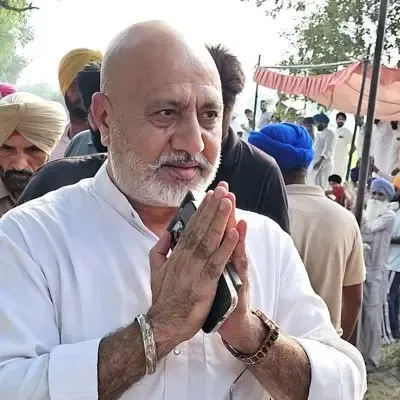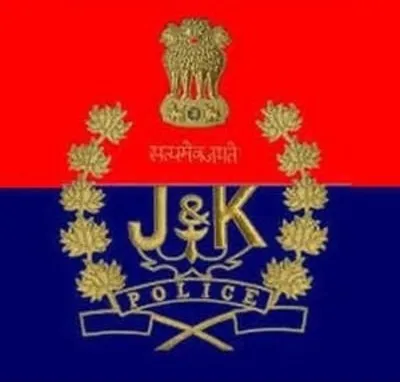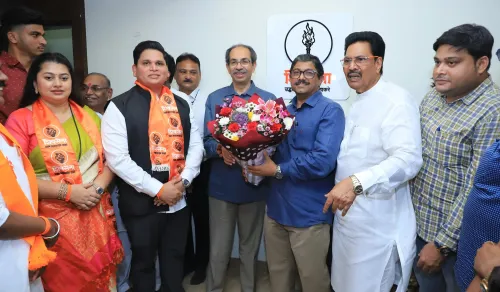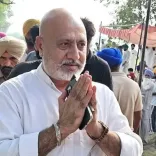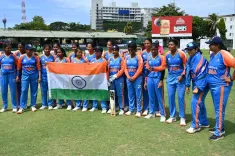Supreme Court to Review Challenges Against Waqf Amendment Act Today
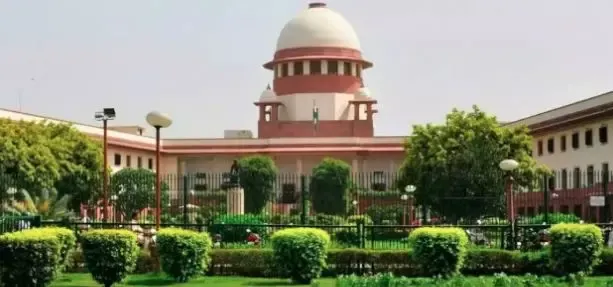
Synopsis
Key Takeaways
- The Supreme Court will hear challenges against the Waqf (Amendment) Act, 2025.
- Multiple petitions argue the amendments violate key constitutional rights.
- The government claims the Act benefits impoverished Muslims.
- Opposition parties assert the amendments polarize religious communities.
- Several states are defending the Act in court.
New Delhi, April 16 (NationPress) The Supreme Court is scheduled to examine a series of petitions disputing the constitutional legitimacy of the Waqf (Amendment) Act, 2025, on Wednesday. According to the cause list published on the apex court's website, a bench led by Chief Justice of India Sanjeev Khanna alongside Justices Sanjay Kumar and K.V. Viswanathan will address the issue on April 16 at 2 p.m.
A number of petitions have been submitted to the Supreme Court contesting the constitutional validity of the recent modifications made to the Waqf Act, 1995.
In response to the petitions requesting a halt to the enforcement of the Waqf (Amendment) Act, 2025, the Union government has lodged a caveat in the Supreme Court. A caveat acts as a notification filed with the court by a party involved in litigation, aiming to be heard if a stay order is potentially issued on the opposing party's request. Additionally, several BJP-governed states, including Haryana, Maharashtra, Madhya Pradesh, Rajasthan, Chhattisgarh, Assam, and Uttarakhand, have approached the Supreme Court to defend the Waqf (Amendment) Act, 2025.
Following the legislation's passage by Parliament in the first week of April, the Congress party announced it would challenge the Waqf (Amendment) Bill (now an Act post-Presidential assent) in the Supreme Court, asserting that it constitutes an attack on the fundamental structure of the Constitution and aims to “polarise” and “divide” the nation along religious lines.
Conversely, the government claims that millions of impoverished Muslims will benefit from this legislation, asserting that it does not harm any individual Muslim.
Minority Affairs Minister Kiren Rijiju stated that the legislation does not interfere with Waqf properties, emphasizing that the Modi government operates with the vision of 'Sabka Saath and Sabka Vikas'.
In his petition to the Supreme Court, Congress MP and party whip in the Lok Sabha Mohammad Jawed argued that the amendments infringe upon Articles 14 (right to equality), 25 (freedom to practice and propagate religion), 26 (freedom of religious denominations to manage their religious affairs), 29 (minority rights), and 300A (right to property) of the Constitution.
Another petition was submitted by All India Majlis-e-Ittehadul Muslimeen (AIMIM) chief Asaduddin Owaisi, asserting that the contested amendments are “ex facie violative” of Articles 14, 15, 21, 25, 26, 29, 30, and 300A of the Constitution of India and are manifestly arbitrary.
Numerous other organizations, including the Association for Protection of Civil Rights, AAP leader Amanatullah Khan, Maulana Arshad Madani of Jamiat Ulema-i-Hind, the All India Muslim Personal Law Board (AIMPLB), the Social Democratic Party of India (SDPI), the Indian Union Muslim League, Taiyyab Khan Salmani, and Anjum Kadari, have also filed petitions questioning the constitutional validity of the Waqf (Amendment) Act 2025.
The term ‘Waqf’, grounded in Islamic laws and traditions, denotes an endowment made by a Muslim for charitable or religious purposes, encompassing mosques, schools, hospitals, or other public institutions.


